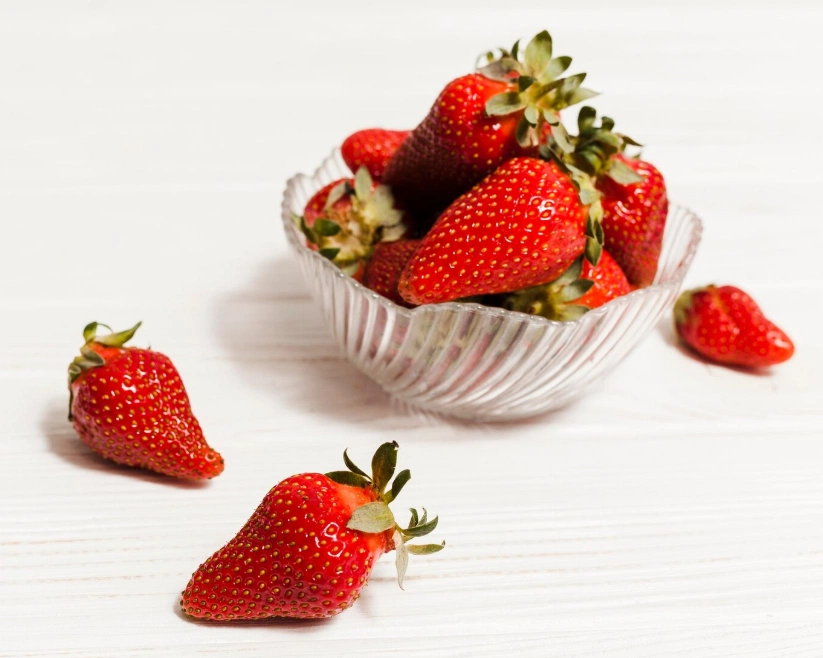🍓 How Acidic Are Strawberries for Teeth?

Have you ever wondered about strawberries, primarily because they are tantalizingly delicious and because they contain vitamins such as Vitamin C, antioxidants, and an abundance of fiber? Yes, indeed, strawberries have a huge number of health benefits. However, despite their health benefits, strawberries have a certain degree of acidity and, therefore, have the potential to affect your tooth surface, making you more vulnerable to the wear and tear of time. In this blog post, we shall take an in-depth look at the effects of strawberries on your teeth, detailing the issue of acidity, and employing a comprehensive study on how to enjoy strawberries without any adverse effects to the outer layer of your teeth.
🔬 Why Are Strawberries Acidic?
If you have ever tasted a strawberry, then you will have no doubt about the little zing that the taste of the strawberries has and that comes from the presence of a natural component known as Malic Acid. This compound is responsible for some of the rich and tantalizing flavors that you feel in the mouth while swallowing the fruit. In this case, malic acid is less erosive than citric acid, but too much of anything, even malic acid, may lead to more enamel loss. Furthermore, the natural sugars present in a strawberry can also nourish acidogenic bacteria already existing in the oral cavity, which further aggravates the condition of the teeth in relation to wear and tear.
🦷 How Strawberries Affect Your Teeth
- Enamel Erosion: Although strawberries have many health benefits, they can significantly damage tooth enamel if eaten frequently or excessively.
- Increased Sensitivity: Weak spots on enamel due to the presence of malic acid lead to tooth sensitivity to extremes in temperature or sweetness.
- Staining: Strawberries do not stain teeth directly but can make them vulnerable to stains if the outer layer of the tooth is already damaged.
- Cavities: By having natural sugars on strawberries, bacteria in the mouth, already present, consume them and produce acids that lead to cavities among those who consume them.
🍓 Tips for Making Strawberry Consumption Lip-Safe!
- Pair the strawberries with calcium-rich and creamy foods like cheese or yogurt beverages, which are rich in calcium and they have been proven to work effectively in neutralizing the acid in these strawberries so that they do not harm the enamel on your teeth.
- After eating these delightful fruits or drinking their juices, immediately rinse with a glass if water to help wash away any remaining citric acid and extend the life of your precious enamel.
- Avoid taking small sips of the concentrated strawberry juices over long periods because it only works to expose the enamel on your teeth to such harmful juices. It is best to drink them in one sitting if you must suppress the mouth’s reaction to the fruit’s acidity component.
- Brushing of the teeth right after having eaten strawberries or drunk their juice is strongly discouraged by most dentists because the pH of the mouth takes a situation just after consumption, which erodes the fluoride protective coating. Hence, it is better to wait for around 30 minutes before going on with the agenda of oral hygiene.
- Go for fresh and natural strawberries as opposed to their canned varieties or artificially flavored sauces and juices. The sugar and additives in these processed options can actually increase the level of acidity even more and counteract any of the benefits that the strawberries might otherwise have.
Final Thoughts from Lema Dental Clinic
Strawberries are a perfect example of a nutrient-rich fruit that comes with long lists of health benefits, but it is also a fact that their acidity can cause enamel to erode slowly but surely. Eating a reasonable amount of them, rinsing your mouth, and maintaining good oral hygiene are the steps you need to take to savor the delicious taste of a strawberry without letting your oral health be at stake.